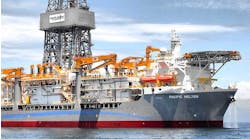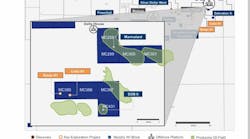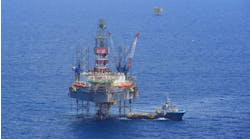Offshore staff
HOUSTON -- Oil and gas executives have serious concerns about the future of the US industry because of regulatory changes and other fall-out that may result from the Macondo oil spill in the Gulf of Mexico earlier this year, according to a survey released today by Deloitte.
About two-thirds of oil and gas professionals feel that post-spill regulations would harm oil and gascompanies across the board. Independent exploration and production (E&P) companies areexpected to be the most vulnerable to potential regulations, with one in three survey respondents believing that there will be a strongly negative impact for these companies. Oil and gas professionals also think that contractor and operating partnerships will be negatively impacted.
Deloitte conducted 201 quantitative interviews among oil and gas professionals from Nov. 1 - 8. All respondents were oil and gas company employees who have worked in theindustry for at least five years, are college educated and earn at least $100,000 per year. The results have a margin of error of +/- 6.9%, Deloitte said.
Among the survey's findings:
• Oil and gas professionals still have a negative view of the U.S. energy situation, though positive outlooks have increased slightly since last year.Oil and gas professionals still have optimistic expectations for natural gas, but over half of all respondents feel that the best days for economically favorable oil are behind us.
• Exacerbating negative perceptions of the oil industry are the harmful effects of the Gulf spill and subsequent potential regulations that may be bad for the industry and U.S. energy supply.
• Initial post-spill regulations, such as the six-month drilling moratorium, are believed to have already damaged the U.S. oil and gas industry. Survey respondents expect potential post-spill regulations to further harm the oil industry by causing permitting delays, increasing drilling costs and reducing employment.
• As a result of anticipated regulations and their negative effects, oil prices are expected to rise in the future.
• Independent oil and gas companies are predicted to be hit hardest by potential post-spill regulations due to their difficulty to absorb additional operational costs.
• Half of all oil and gas professionals feel that the aftermath of the Gulf spill will increase the likelihood of merger and acquisition activity among companies operating in the region.
• Post-spill regulations are not only expected to decrease interest in offshore drilling in U.S. waters, but to also drive interest in oil development overseas, such as in deepwater Africa and Brazil.
• Oil and gas professionals do not expect that new regulations will shift energy development interests onto domestic soil, with more than half saying that the regulations will not increase onshore oil and gas development in the U.S.
• Oil and gas professionals are divided over whether new regulations will make the oil and gas industry more safe, with about 40% saying ‘yes’ and about 40% saying ‘no’ -- and almost one fifth undecided.
• Despite split opinions on the effectiveness of safety regulations in the industry, a majority of oil and gas professionals say that their companies are more likely to review and update their health and safety policies as a result of the Gulf spill.
• The majority-held belief is that any improvements in drilling safety will come from the industry itself, rather than from external regulations, discoveries or requirements.
• Oil and gas professionals are divided on the impact of increased liability stemming from the Gulf spill: half are concerned that increased liability will hinder their company’s operations, whereas the other half does not think it will be an issue.
The survey also revealed that oil and gas professionals are concerned about the effect of regulation on hydraulic facturing. Those surveyed felt that proposed federal regulation of hydraulic fracturing is expected to limit and decrease natural gas production and therefore lead to higher natural gas prices.
A majority of oil and gas professionals don’t expect the price of crude oil to exceed the $80 - $100 per barrel range next year. One in four thinks the highest price will not surpass $80 per barrel. There is no consensus on where natural gas prices will go in 2011. About the same number believe it will peak below $6 MMcf as those who think it will climb above the $6 MMcf mark.
11/18/2010


